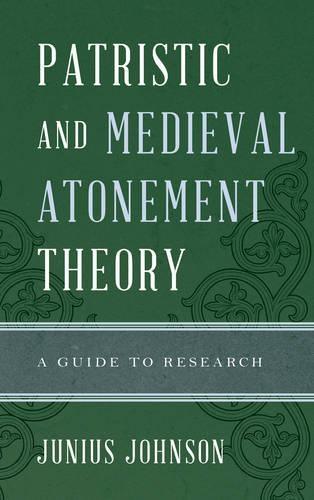
Patristic and Medieval Atonement Theory: A Guide to Research
(Hardback)
Publishing Details
Patristic and Medieval Atonement Theory: A Guide to Research
By (Author) Junius Johnson
Bloomsbury Publishing PLC
Rowman & Littlefield Publishers
24th December 2015
United States
Classifications
Professional and Scholarly
Non Fiction
Theology
Philosophy of religion
History of religion
234.5
Physical Properties
Hardback
222
Width 157mm, Height 239mm, Spine 20mm
445g
Description
The notion of atonement, a process by which humans are made right before God, is central to the logic of Christian theology. In spite of this, major thinkers in the Christian traditions have held vastly different understandings of both the way atonement works and what it means. These differing accounts have become intellectual traditions which continue to influence both academic theology and spiritual practice today. In spite of the strong dependence of much contemporary thought on early ideas, linguistic and cultural barriers often preclude serious study of the original materials. Patristic and Medieval Atonement Theory takes a close look at the doctrines that depend on and influence views of atonement in order to make clear what place atonement occupies within the larger system of Christian theology. Junius Johnson also considers key concepts and tensions within the doctrine of atonement itself, which may be emphasized or glossed over to create the shape of particular doctrines. Johnson's guide briefly discusses major figures in the development of Christian doctrines of atonement to the end of the Middle Ages. Johnson then turns to the major primary and secondary sources and provides an orientation to the rich literature existing on this topic. The attention given to the anatomy of the concepts involved, the introduction to the ideas of major thinkers, and the survey of available literature makes this an essential guide for students and scholars of Christian theology of any period, as well as those who research the Middle Ages but are not specialists in theology.
Reviews
Johnsons project is ambitious, and his methodology commendable. I expect that anybody with an interest in Christian theology will be enthusiastic about Junius Johnsons promising new title, especially those who consider the patristic and medieval periods as the essential starting place for understanding the development of the Christian doctrine of atonement. * Reading Religion *
Author Bio
Junius Johnson is assistant professor of historical theology at Baylor University, a research fellow at the Rivendell Institute at Yale, and a research associate at the University of the Free State in Bloemfontein, South Africa. He is the author of Christ and Analogy.
